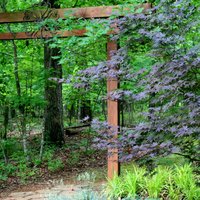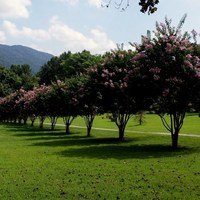ABOUT
The Center for Eternal Awareness is an outreach of the Little Creek Monastery. This is a modest service to assist fellow travelers in their studies, applications, understandings, and realizations along the inner path of Harmony. Modest as it is, the subject matter is far from modest.
The Center for Eternal Awareness exists to help us realize — not simply believe — that we are eternal beings, now.
Essays and articles posted here are a mix of my brother’s writings (Scott Walter) and my own experiences (Mark Walter). His writings are practical teachings and my writings spin-off from student experiences. Our writings are respectively tagged on this site as Teachings and Experiences.
TEACHINGS
TEACHINGS
Scott Walter is a Jiu Jitsu Shihan. He is the founder and director of Great River Institute and of Great River Jiu Jitsu. GRI is located in the Blue Ridge mountains of Virginia.
These essays are based on live lectures and classes.
Nature views from Great River Institute
BACKGROUND to TEACHINGS
FAQS
Q. When did the essays occur?
A. Great River Institute was founded in 1991. This series began in 2009. But GRI has thousands of other lectures and seminars.
Q. Why are these particular essays provided on the monastery’s website?
A. The monastery’s founder received training and certifications from Great River Institute and Great River Jiu Jitsu. While the two organizations do not have a formal relationship, the monastery hosted an extensive series of web-based discussions, and also helped coordinate remote students from across the United States and the United Kingdom, for participation in live GRI seminars. Additionally, we hosted Sensei and a group from his Virginia study center during a west coast visit, which included attending seminars and initiations by HH The Dalai Lama.
Q. Who is Sensei?
A. Scott Walter. He is the founder of Great River Institute and Great River Jiu Jitsu. Mark Walter, founder of the Little Creek Monastery, is his brother. Sensei is a term of address used in the martial arts. It means teacher.
Q. Is the monastery Buddhist?
A. No. Little Creek Monastery and GRI are both open to anyone — including whether you are religious, scientific, agnostic or atheist. The monastery is founded based on martial arts principles, and related studies and practices. We are a non-religious monastery. We practice an inclusiveness exemplified by universal truths and principles.
Q. Did the monastery publish these essays?
A. Yes, with the permission of Great River Institute. We hope to expand the collection. There is a small amount of additional content on our blog, tagged Great River.
Q. I have noticed Biblical references in GRI teachings, which appear to be Christian-based. Is Great River focused exclusively on Christianity?
A. No. GRI is a highly inclusive learning and resource center, and teaches from a number of perspectives including Christian, Sufi, Cabala, Islam, Hinduism Buddhism, Zen, and Taoist approaches, and is also familiar with numerous philosophies, including the Transcendentalists and Stoics. The institute has been involved in extensive consciousness research, and has staff members trained in traditional psychology. Due to its physical location in southwest Virginia and the predominant religious interests of that region, Biblical references may appear in GRI’s teachings. Some subjects are treated symbolically or metaphorically, and others occur within the context of diverse religious or belief systems.
Q. Sensei sometimes refers to something called the “Christ-point.” What is meant by this?
A. He is making reference to a concept that supersedes Christian references.
“The Christ is not a person. It is a way of being... You can make the connection as a Buddhist, a Zen Meditator, a Muslim, a Jew, an Artist, a Musician, and any number of forms. But the Way to connect to the Oneness in any form is the one referred to as Christ. [But] it doesn’t matter what you call it.” — from the essay “Reconciling Separation from the Oneness.
This point can be described as a state of being, or as the spot between the in and out breath, the spot between right and wrong, or between life and death. In a sense, it’s the Middle Way, the overcoming of duality, the Oneness.
EXPERIENCES
EXPERIENCES
The essays listed below represent the beginning of a series on my personal experiences. Some of these, while true, may simply come across as stories. But my overall intent is to create a series of insights into the inner journey and the difficulties and successes that can occur when we are trying to overcome our own blocks and defenses. - Mark Walter




